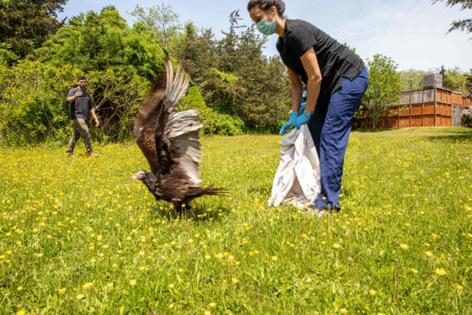CDC, FDA, USDA answer big questions about the growing bird flu outbreak
Published in News & Features
Representatives with multiple agencies including the CDC, the United States Department of Agriculture and the Food and Drug Administration on Wednesday discussed the latest news about bird flu in the U.S.
The agencies are continuing to test milk, dairy products and meat to ensure they can not spread the virus, and working to monitor farm workers for more human cases of bird flu.
Here’s a look at some of the questions they addressed.
Q: Has the virus spread between people?
A: While there can be rare instances of human-to-human transmission of bird flu, there have been no such cases in the United States. Dr. Rosemary Sifford, chief veterinary officer for the USDA, said researchers are not seeing changes in the virus that would indicate it might spread more easily between people. The dairy worker reported with bird flu on April 1 is the second human case of the virus reported in the U.S. The worker had conjunctivitis, a mild eye infection, and recovered.
Q: What is the CDC doing to respond to the bird flu outbreak?
A: Dr. Demetre Daskalakis, director of the CDC’s National Center for Immunization and Respiratory Diseases, said the agency is looking for unusual trends in flu-like illnesses around the country and conjunctivitis — especially in areas where H5N1 virus has been found in dairy cattle or other animals. CDC’s flu surveillance systems are not showing any signs of unusual flu activity, which might indicate avian influenza.
The CDC is also supporting the monitoring of exposed workers, Daskalakis said. People who have been exposed to infected cows, poultry or other animals are monitored for 10 days and if they show symptoms of illness, they are then tested. So far over 100 farm workers have been monitored.
He said the CDC is also providing guidance for farm worker protection, which includes a graphic for recommending personal protective equipment for those who work with farm animals and that is available in English and Spanish.
He said the agency is also conducting ongoing lab work, which includes genetic sequencing. Because viruses are constantly changing, he said the CDC is continually analyzing the virus to identify any genetic changes that suggest these viruses might spread more easily to and between people or might change in a way that makes antivirals and vaccines less effective.
...continued
©2024 The Atlanta Journal-Constitution. Visit at ajc.com. Distributed by Tribune Content Agency, LLC.







Comments